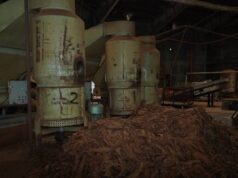ANGELES CITY – “Galunggong”, once hailed as the poor man’s viand, will this time be a target of nationwide protest slated on Feb. 24.
The country’s biggest fisherfolk alliance Pambansang Lakas ng Kilusang Mamamalakaya ng Pilipinas (Pamalakaya) announced yesterday a “nationally coordinated” protest against plans of the government to import galunggong or scud fish, together with other locally available fish such as frigate tuna or “tulingan” and short-bodied mackerel or “hasa-hasa”.
Pamalakaya national chair Fernando Hicap said his alliance is now fully braced for the “simultaneous protest actions against the decision of the Department of Agriculture (DA) and the Bureau of Fisheries and Aquatic Resources (BFAR) to open up the domestic market to fish imports from China, Japan and Taiwan.”
“The plan will be extremely detrimental to small fishermen and local fish producers who catch the same fishes for local market,” he said.
Hicap said Pamalakaya chapters in Northern Mindanao, Central Visayas, Panay and Guimaras Islands, Masbate, Sorsogon, Albay, Palawan, Batangas, Cavite, Rizal, Bulacan, Aurora, La Union, Ilocos Sur and Ilocos Norte agreed to conduct mass actions including “fluvial parades and floating protests to pressure Pres. Aquino” back out from the importation plan.
He said Pamalakaya chapters in Laguna, Quezon, Camarines Norte, Camarines Sur, Negros Island, Eastern Visayas, Far South and Southern Mindanao are expected to join the Feb.24 protest.
“Apart from its demand for the government to scrap fish importation plans, Pamalakaya also wants the scrapping of the 14-year old Fisheries Code of 1998, which fisherfolk official described as a 14-year old white elephant, anti-fisherfolk and pro-landlord,” he said.
Hicap noted that “the Fisheries Code of 1998 merely justified the entry of commercial fishing vessels inside the 15-kilometer municipal fishing waters and effectively reduced fishing activities of small fishermen through the imposition of zoning ordinances, color coding schemes and exorbitant fees and penalties ranged against marginal fishermen.”
Pamalakaya dismissed that claim of DA and BFAR that 10 of the 13 major fishing grounds in the country are overfished due to overcrowding of small fishermen. “The claim is strongly biased against small-scale fishermen and is only meant to justify the importation and mass flooding of fish imports,” it said in a statement.
“A very backward fishing boat and passive gear cannot even go beyond the 10-15 kilometer municipal fishing water and such backwardness of small-scale fish capture cannot even catch more than 5 kilos of fish a day,” Hicap noted.
He said that any possible shortage should be blamed instead on “large scale commercial fishing vessels owned by joint ventures of foreign and local companies and corporate aqua farms in the country.”
Pamalakaya said small fisherfolk and other local producers would greatly suffer once DA and BFAR pushed through with the importation of galunggong and other fish.
“The militant group said the landing cost of highly subsidized foreign galunggong is P20 per kilo while locally produced galunggong is sold at P40 per kilo in major fish port across the country,” Pamalakaya said in its statement.
Earlier, BFAR said that 10 of the 13 fishing grounds in the country have been “very heavily exploited” with more than 70 fishermen per square kilometer fishing in the areas.
BFAR said some 900,000 metric tons of imported fish enter the country every year, mostly for institutional buyers who process seafood. However, some fish like galunggong, tulingan and hasa-hasa also end up in wet markets.




